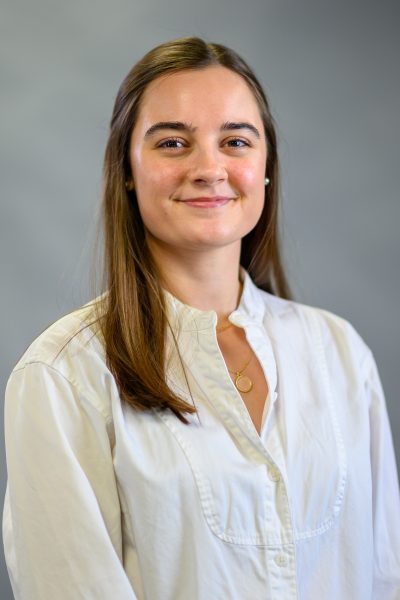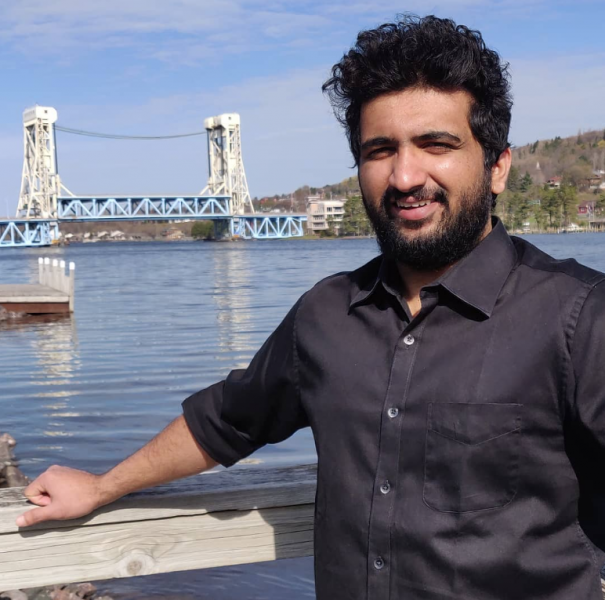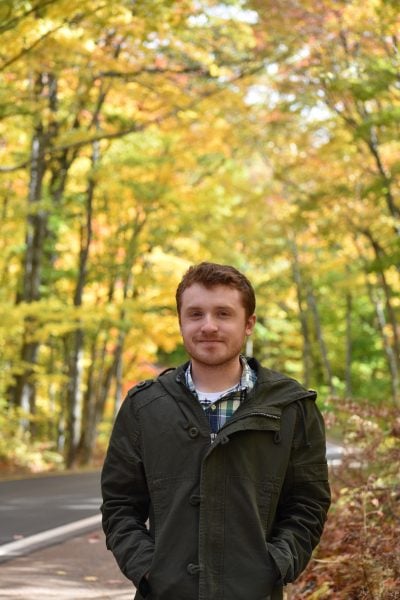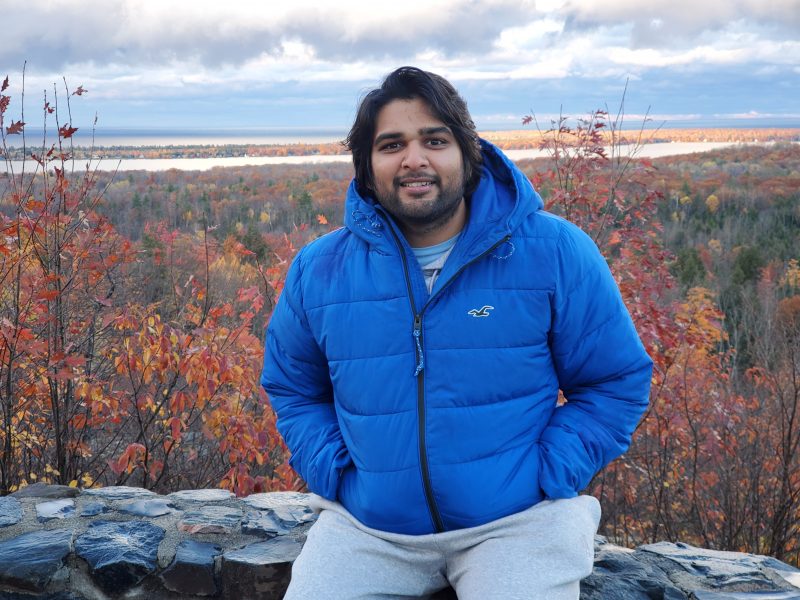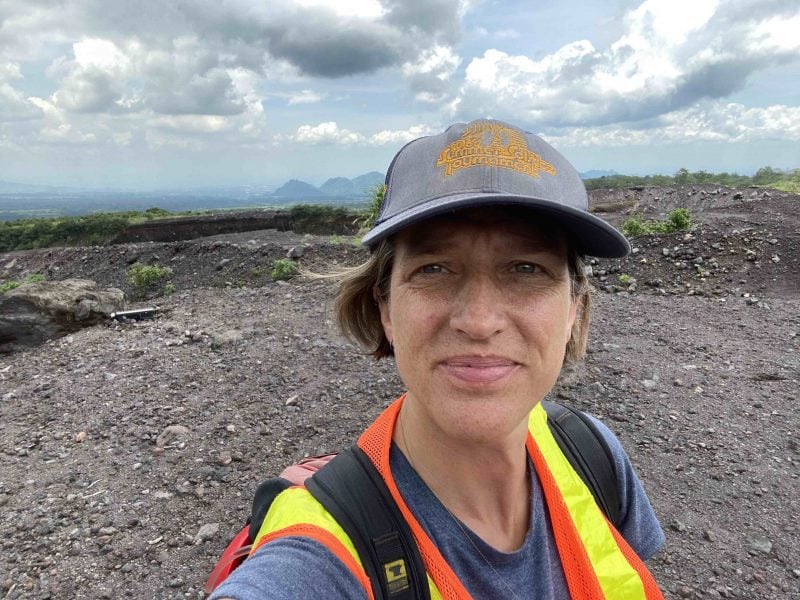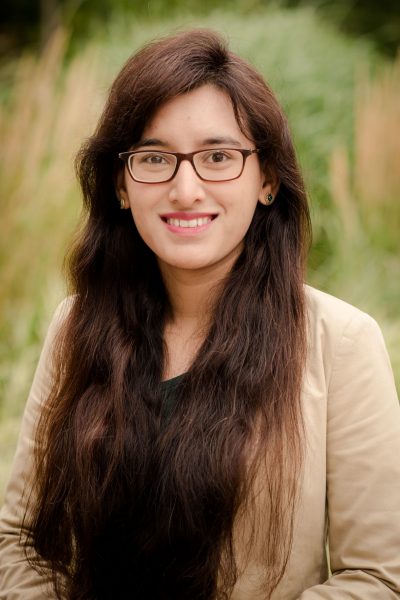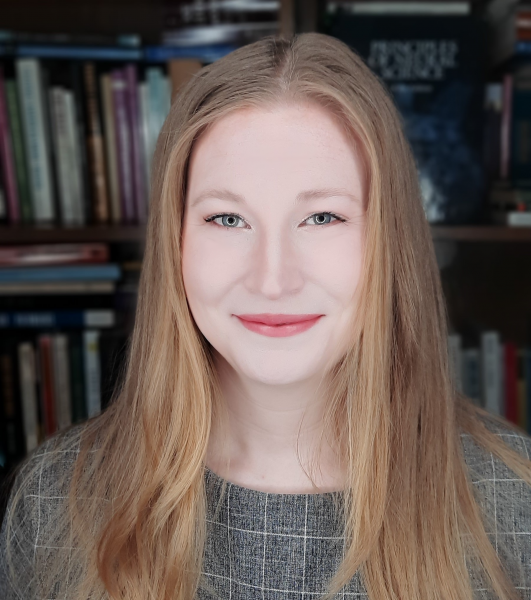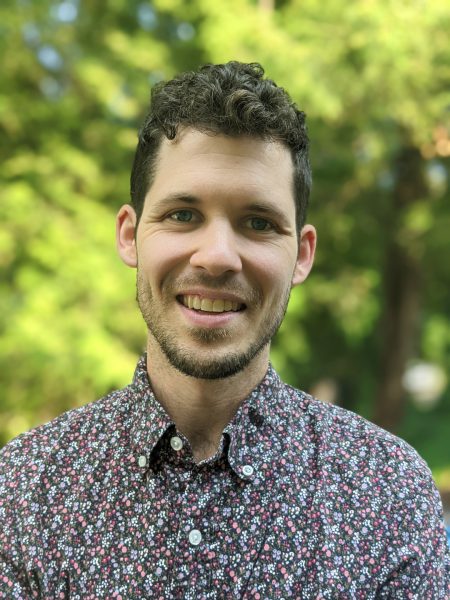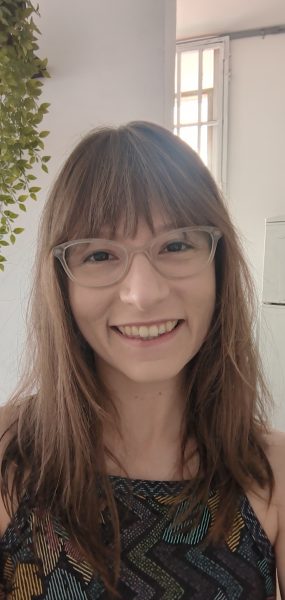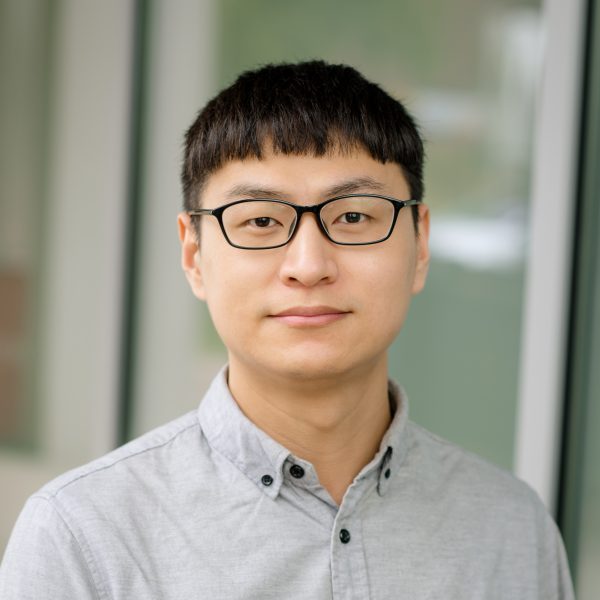Interesting stories about and for our students.
I started working at the APS LABS for my Masters’ thesis in Fall 2017. The research and the people at the APS are so amazing, that it wasn’t a difficult decision to stay for my PhD. I started my PhD in Summer 2018 under the guidance of Dr. Jeremy Worm, who is the associate director of APS LABS.
Majority of my PhD work has been on gasoline engines- how they can be further improved and made more efficient. The projects I have worked on have been industrial projects for major automotive companies like General Motors, Ford, Stellantis and Nostrum Energy. The current automotive climate is all about electrification. But I believe that the internal combustion engine, which is one of the major factors that has brought civilization to the advanced stage it is at right now, still has a massive role to play in the future. But the beauty of working at the APS LABS is that you are not confined to a single subject, and get exposure to all sorts of power systems. In the last five years, I have worked with hybrid electric vehicles as well, and also on a project to consider the environmental and economic impacts of electrifying the Mackinac Island ferry.
The last five years have been memorable and fulfilling, and a lot of that is thanks to my advisor, Dr. Jeremy Worm. With the help of the Finishing Fellowship, I will be able to write the final chapter of doctoral journey (figuratively and literally), and move a step closer to my goal of becoming an academic.
From a young age, I always wanted to understand how the world worked and took a deep interest in science. I was constantly asking big questions, such as why do objects act as they do, what happens if you keep cutting an object, and how did the universe begin. This led me to become interested in physics, which seemed to focus on the most fundamental aspects of our universe. I was drawn to the way that physicists use experiments and math to explain the behavior of matter and energy at the smallest and largest scales. I loved reading about the latest discoveries in physics and learning about the theories that scientists were developing to explain them, and wanted to understand for myself. Pursuing this goal led me to my current path.
I began my PhD in 2019 following my Masters, working under the advisory of Dr. Issei Nakamura in the Department of Physics. My research has focused on utilizing molecular dynamics simulations to model highly charged and polar liquids, with emphasis on ionic liquids and polymerized ionic liquids. These materials have potential uses as electrolytes in batteries and supercapacitors, as nanolubricants in molecular devices, for phase separation of HFCs, and much more. These materials are interesting from a fundamental physics perspective as well, since the complicated nature of their dielectric properties are not well understood in the current literature. My work has helped uncover an understanding behind these properties as well as showing the capabilities and pushing boundaries of models used to simulate these materials.
My utmost thanks to the Graduate Dean Awards Advisory Panel for awarding me this finishing fellowship. I would also like to thank my graduate advisor Dr. Issei Nakamura and the Department of Physics at Michigan Tech for the support through this process of the PhD and providing such fantastic opportunities for learning, growth, and experience.
My passion for research developed early on in my life as I saw my father going to the laboratory, doing research using cool equipment. He inspired me to ask intriguing questions in life and find answers to them. My journey in biomedical research began during my undergraduate in biotechnology where I was introduced to the concepts of cell and molecular biology research and its application. In my undergrad, I got firsthand experience of working in a research lab where I learned to independently run PCR (polymerase chain reaction) and electrophoresis gels. This sparked my curiosity to further develop my career in research. That’s when I joined Michigan Tech as a master’s student in the biomedical engineering department. At Michigan Tech, I learned about the development of biomaterials and their physiological applications. During this time, I also got the opportunity to do an internship at a Biotech company.
My research experience during my master’s and internship motivated me in advancing my professional career and join PhD. In 2018, I got the opportunity to join Dr. Sangyoon Han’s Mechanobiology laboratory. My research focus is to understand the mechanism of how cells sense the stiffness of their surrounding environment. Specifically, I am investigating how and when exactly the mechanical link between a cell and its extracellular matrix (ECM), known as focal adhesions, sense different stiffness and molecules involved in the process. For this purpose, I use soft elastic gels (biomaterials), live-cell imaging microscopy, and machine learning-based image analysis to study how different ECM stiffness can affect the force transfer through these connections. Mechanical stiffness of the matrix has been known to dictate cell behavior such as their survival, proliferation, migration, altered drug response and even tumor progression. With my research, I aim to provide new insights in physiology and pathophysiology for developmental disorders, cancer progression and metastasis and designs of tissue transplantation. This is critical in determining treatment strategies for these diseases. Along with research, I was fortunate to mentor and supervise many undergraduate and masters’ students for their respective projects. I also got the opportunity to present my work at different conferences and win grants for my research.
I am grateful to my advisor Dr. Sangyoon J. Han for his continued support and guidance over my PhD years at Michigan Tech. I am also grateful to my committee and biomedical engineering department for supporting me with my PhD journey. I am thankful to the Graduate school and Graduate Dean Awards Advisory Panel for granting me this fellowship. This fellowship will help me dedicate all of my time to complete my dissertation.
I arrived to MTU in August 2020 as a geoscientist and science communication specialist wanting to develop into a researcher in disaster risk reduction. I now study how people live with natural hazards with the goal of improving our ability to adapt to our changing environments.
My dissertation examines evacuation processes at Fuego volcano, Guatemala, where Tech has a long history of volcanological and risk reduction research. In 2018, an eruption of Fuego volcano destroyed three populated areas; one evacuated, resulting in no casualties, while two did not, resulting in hundreds of deaths. My work aims to understand information availability, use, and limitations in evacuation decision-making during this deadly eruption and present day. The overarching goal of my research is to decrease risk to communities on the flanks of Fuego volcano through informing improved evacuation practices. The research will also inform forensic disaster research and risk reduction in other contexts as well.
This fellowship will enable me to complete my dissertation in Spring 2023 to start my next chapter, a postdoctoral Mendenhall Fellowship with the USGS Volcano Hazards Program starting in June 2023. I am proud to be joining the ranks of the many other MTU alumni working in the Natural Hazards Mission Area at the USGS. I will be the first social scientist within the Volcano Hazards Program. I am grateful to my supportive, multidisciplinary committee, for which I chose MTU. Thank you to my co-advisors Greg Waite (GMES) and Rüdiger Escobar Wolf (GMES) and committee members Luke Bowman (GMES), Angie Carter (SS), and Kari Henquinet (SS).
I joined Michigan Technological University as a Fulbright PhD Scholar in 2017. I earned a master’s degree on the fly in Mechanical Engineering-Engineering Mechanics in 2019. My doctoral research focuses on modeling and predictive control of a multi-mode engine. As we know, engine-out emissions increase air pollution and contribute to climate change. The transportation sector is one of the sources of air pollution. My research focuses on improving thermal efficiency and reducing engine-out emissions.
Low-temperature combustion modes are among the advanced combustion technologies which offer high thermal efficiency and reduced engine-out NOx and soot emissions. A conventional spark ignition (SI) engine is modified to achieve low-temperature combustion modes. The main challenges associated with the low-temperature combustion modes include combustion timing and engine load control, high maximum pressure rise rate, cyclic variability and limited operating range. I have developed linear and nonlinear model predictive controller frameworks to control combustion phasing and engine load while restricting cyclic variability and maximum pressure rise rate for different low-temperature combustion modes. In addition, I have developed a closed-loop model predictive controller which ensures mode switching between conventional spark ignition (SI) engine and a low-temperature combustion mode to achieve better efficiency and reduced emissions. The developed controller performance is validated for the multi-mode engine operation in real-time.
I greatly appreciate the Graduate Dean Awards Advisory Panel for awarding me the finishing fellowship. I would like to extend my gratitude to my co-advisors, Dr. Jeffrey Naber and Dr. Mahdi Shahbakhti, for their guidance, support, and encouragement throughout my research.
My interests lie at the intersection of accessibility and efficiency. For this reason, I transitioned away from clinical work and started my PhD in Applied Cognitive Science and Human Factors in January 2019 under the guidance of Dr. Kevin Trewartha. From day one, my research has focused on developing new tools for assessing cognitive decline in older adults through the study of motor skill learning using a specialized robotic device.
My dissertation research focuses on the use of two novel motor skill learning tasks to distinguish between healthy aging, mild cognitive impairment, and the early stages of Alzheimer’s disease. Cognitive decline associated with Alzheimer’s is typically measured using neuropsychological tests that lack sensitivity and specificity to subtle changes in cognitive function associated with disease progression. As such, these tests struggle to correctly diagnoses patients with pre-clinical dementia symptoms (such as mild cognitive impairment) or the early stage of Alzheimer’s disease. Recent research, however, has shown that the ability to adapt our movements to learn a new motor skill may relate to changes in learning and memory that occur early in the development of the disease. My dissertation will explore the relationship between data collected from two motor learning tasks and data collected through a typical battery of neuropsychological tests to diagnose Alzheimer’s-type dementia. We expect that these motor learning tasks can go above and beyond the ability of the neuropsychological battery to detect changes in cognitive functioning. Importantly, these motor learning tasks take about half the time to complete compared to the standard diagnostic procedures. By showing that these tasks are sensitive to subtle changes in cognitive decline, we can increase certainty in the proper diagnosis while minimizing the time and costs associated with the diagnostic procedure. This could lead to earlier and more efficient diagnoses and subsequent earlier treatment to slow the progression of cognitive decline, thereby improving patient and caregiver quality of life.
I would like to thank the Graduate School Awards Advisory Panel for this fellowship, and my advisor, Dr. Kevin Trewartha, for his consistent support and guidance over the last four years.
I started collecting tropical plant physiology data for Dr. Molly Cavaleri as a plant physiology technician in October 2018 and started as a PhD student in her lab within the year. My interests in plant physiology are applied to how plants will respond to environmental forcings caused by climate change. Since plants are both a sink and source for atmospheric carbon, climate change effects on plant physiology will feedback responses to atmospheric carbon. I have been working at the Tropical Responses to Altered Climate Experiment (TRACE), a tropical understory warming experiment located in Puerto Rico, where I have been measuring plant responses to +4 °C experimental warming. I have been looking at acclimation responses to warming in leaf and root respiration, photosynthesis, and the limits for high-heat tolerance in leaves. All of these projects that I have been working on are generating data that will be fed into global models that predict how tropical forests will interact with the atmosphere under different climate scenarios.
The next step in my career is to start the postdoctoral fellowship I have accepted at Michigan Tech in collaboration with several federal agencies to do the modeling work on the data I collected during my PhD. Dr. Molly Cavaleri, my committee, the College of Forest Resources and Environmental Science, and the TRACE team have all been amazing to work with and I look forward to working with them more over the next couple of years. I would also like to express my thanks to those who fund the Finishing Fellowship award and gave me the opportunity to spend an extra semester writing up the exciting work I have been doing as PhD student.
When I was in middle school there was a question on a standardized test about the water table. I had never heard that term before and was completely confused, having no clue what it meant. That moment sparked a natural curiosity in me about groundwater and prompted me to learn more. When I took a hydrogeology course at Michigan Tech during undergrad, taught by my now co-advisor, I knew that this was the field I wanted to go into. Not only did I find it interesting from a scientific viewpoint, but also working in this field allows me the opportunity to work on projects that positively impact people and the environment.
I eventually returned to Michigan Tech in Fall 2018 to pursue a PhD in Environmental Engineering. My research focuses on the process of groundwater inundation (flooding) driven by sea level rise on small islands. As sea level rises, the water table also rises and can flood low lying areas. This flooding exposes what was once groundwater to evaporation, leading to an accelerated loss of freshwater. My work uses numerical modeling to better understand groundwater inundation and explore the relationship between hydrogeologic features, fresh groundwater, and lake salinity on small islands.
I am truly grateful to the Graduate Dean Awards Advisory Panel for awarding me with this fellowship. I would also like to thank my co-advisors, Alex Mayer and Dave Watkins, and my committee for all of their guidance and support through my pursuit of this degree.
My interest in the field of fuel cells was ignited when I was a master’s student in China. I enjoyed the sense of achievement when I constructed my first small fuel cell device that successfully converted hydrogen to electricity. I wished to broaden my vision in this field and prepare myself to be a qualified researcher with international experience, thus I started my PhD study at the Department of Materials Science and Engineering under the guidance of Prof. Yun Hang Hu in Spring 2018.
My PhD research focused on advanced electrode materials for solid oxide fuel cells. The stability of lithium-containing electrodes under fuel cell operating conditions was systematically investigated. Furthermore, a new fuel cell structure was designed based on the decomposition and diffusion of electrodes, achieving excellent device performance. I am pleased that my research could contribute to efficient and clean energy conversion technologies.
I would like to thank the graduate school and the evaluation panel for providing me with this important fellowship. This would help me concentrate on the completion of my PhD dissertation during the upcoming semester. I also sincerely appreciate my advisor, Prof. Hu, the MSE department, and my group members for all their support.
